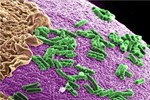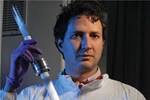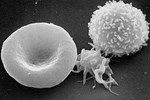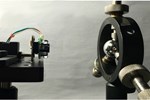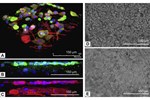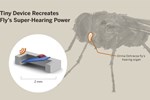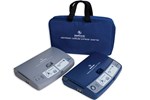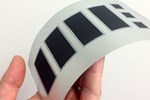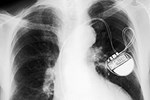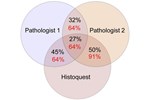ARTICLES BY JOEL LINDSEY
-
DARPA’s New Synthetic Biology Program To Yield Novel MedTech8/4/2014
A new program initiated by the Defense Advanced Research Projects Agency (DARPA) will focus on making significant advancements in the growing field of synthetic biology. The program could pave the way for the future development of increasingly complex and effective biomedical devices.
-
Laser Beam Technique Developed For Drawing Blood8/4/2014
With research support from the University of Central Florida, medical device startup NoNeedles Venipuncture is working to develop a new device that uses lasers instead of needles to collect blood samples.
-
Can A Blood Sensitivity Test Reliably Detect Cancer?8/1/2014
Researchers at England’s University of Bradford have created a simple blood test that they say could provide a reliable means of detecting a number of different types of cancer.
-
Wearable Device Could Provide Early Detection Of Diabetes-Related Complication7/30/2014
A research team in Taiwan that includes scientists from National Taiwan University Hospital and National Chiao-Tung University has created a device called a pupillometer designed to measure certain conditions in the wearer’s pupil in order to predict the early onset of a complication related to diabetes.
-
Google’s Newest Science Project: Defining Perfect Human Health7/28/2014
Google has launched a project focused on studying and analyzing the human body in greater detail than ever before by comprehensively cataloging genetic and molecular information. The ultimate goal of the project, which has been dubbed Baseline Study, is to map out a clear picture of what a perfectly healthy human body would look like.
-
3D Tissue Printing Technique Could Advance Stem Cell Research7/28/2014
A team of researchers at Rensselaer Polytechnic Institute (RPI) plans to apply their novel 3D printing technique to stem cell research — using the platform to create tissue similar to the natural environment of human stem cells.
-
Developing Fly-Inspired, Piezoelectric Hearing Aids7/24/2014
Using a fly as inspiration, researchers at the University of Texas at Austin (UT) have created a miniature device that they say could lead to the development of hypersensitive hearing aids.
-
Patients Use World’s First Mobile Pacemaker Station7/24/2014
England’s National Health Service (NHS) has launched its first mobile pacemaker station in the town of Southampton. The station has been designed to allow patients with pacemakers to conduct regular check-ups without having to visit a doctor.
-
Printable, Flexible, Rechargeable Batteries For Medical Devices7/24/2014
Imprint Energy, a California-based startup, has developed ultra-thin, flexible, zinc-polymer rechargeable batteries that could have a significant impact on the field of wearable medical devices.
-
New Gene Therapy Could Make Electronic Pacemakers Passé7/23/2014
Researchers at the Cedars-Sinai Heart Institute in Los Angeles have developed a minimally invasive gene transplant procedure that they say could one day provide an alternative to implantable electronic pacemakers.
-
Heat-Seeking Missile Tech Used For Malaria Diagnosis7/22/2014
Researchers at Monash University and the University of Melbourne have devised a way to use hardware from heat-seeking missiles to produce a test for early and reliable malaria diagnosis. In the project, researchers used a special infrared sensor called a focal plane array (FPA), which was originally created for use in Javelin anti-tank missiles, to seek out the presence of malaria in a blood sample. When the FPA was used in conjunction with an infrared imaging microscope to test a blood smear, it successfully detected the infrared signature from fatty acids in the malaria parasites, enabling researchers to consistently identify malaria-infested blood at early stages of infection.
-
New Software Could Improve Consistency Of Cancer Diagnosis7/22/2014
Researchers at the University of Veterinary Medicine, Vienna have developed software that they say could accurately and consistently diagnose cancer by identifying cell structures and proteins specific to cancer cells.

